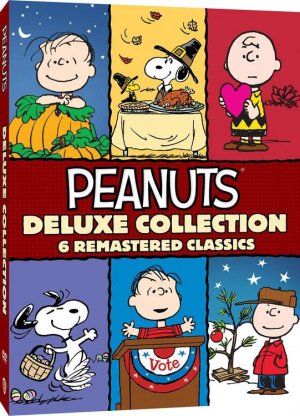In recent days, I watched both The Paper (1994; Glenn Close & Michael Keaton) and The Post (2017; Meryl Streep & Tom Hans), both movies which portrayed what I'm afraid is a bygone era but also point out the importance of the 1st Amendment.
Yeah, to my taste
The Post was much overrated. My commentary after it came out (long):
The Post (2017)
This is a film which tries to be an important picture, but it suffers from several miscalculations. The first assumption was that if a heavyweight group of movie people are put together into a movie project, then the result would be terrific. The second miscalculation was that dredging up an anachronistic federal scandal, despite what we've witnessed in recent times of several equally shameful governmental scandals (exposed by Snowden, Assange), would be of interest to a younger generation.
Some of the biggest and most bankable names in cinema were on exhibit: Steven Spielberg, Tom Hanks, Meryl Streep, John Williams, 20th Century Fox, Universal Pictures, along with a first rate supporting cast of players and craft people.
But the result was workmanlike, almost tired: a very watchable film, but one that seemed to be overly impressed with its subject matter. And therein lies part of the problem. The story focused on
The Washington Post's publisher, Katharine Graham, and to a lesser extent on its executive editor, Ben Bradlee. But yet Graham had only a minor part in the actual historical events. It was simply that it was she who had to make the final decision on whether or not
The Washington Post would follow the
New York Times' lead and publish more of the "Pentagon Papers".
But the real story was Daniel Ellsberg's theft of the volumes of damning evidence regarding the government's lies to the public about the Vietman war, and the exposure of its cold-blooded sacrifice of many thousands of our soldiers to a cause which the government knew it could not possibly win, but yet was too pig-headed to get out. The real story was the lying and cover-up by government, not Katharine Graham.
The secondary story was that Ellsberg then handed over this trove of damning evidence to the New York Times, who subsequently published it serially until a Federal court injunction caused them to cease. Later
The Washington Post obtained a copy and ran with it, and was quickly followed in suit by other major newspapers. The film leaves the impression that it was
The Washington Post who was forging ahead to expose the evil governmental corruption, but yet they were only following up to the rear of the
New York Times.
However it's a reasonable bet that Meryl Streep and Tom Hanks would not commit to a project that would not heavily feature them. So in order to fill that accommodation the final script was presumably written with that in mind. Heroes were made of the wrong people. Therefore the story seemed hollow. How much time could be devoted to Graham fretting over, "Should I" or "Should I not" publish these documents? The answer: way too much.
The acting was first rate, and featured fine performances from the supporting cast, most notably Bob Odenkirk's.
The producers were eager to follow up with the success of
All the President's Men. But with no mystery and intrigue the result was a film with minimal suspense and urgency. It not only did not present anything new, but it reduced a fascinating event in our history into a rather uneven and out of focus misrepresentation.
Spielberg's direction was competent, but boilerplate, almost as if he hadn't given the project his full attention. The opening and closing scenes seemed tacked on, as if to insure the film's relevancy. The opening Vietnam battlefield scenes were presumably intended to both show the horrors of war and also to introduce Ellsberg (Matthew Rhys), as he feverishly rattled away on his portable typewriter in the war zone.
The incongruous closing scene showed a view of the Watergate burglary looking from across the street at the 6th floor as the janitor discovered the crime in progress. The footage, which just as easily might have been taken from YouTube, was evidently intended to leave the movie goer with the impression that, although Truman, Kennedy, and Johnson were the major forces in the government's horrific decision to squander thousands of American lives, it was Nixon who was
really bad, even though it was Nixon who finally got the U.S. out of Vietnam.
Doc's rating: 6/10, mostly for the acting and craft work


